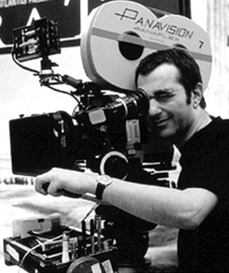
Canada seems to have something of a fuzzy stature on the world stage in terms of its cinematic identity. It’s not that they don’t make films, because they most certainly do. Part of the problem comes with the assumption that the public makes when faced with films that come from Canada. Given their very general identification as producers of English-language films in North America, most people just assume that these films are American-made. Similarly, when the French-speaking region of Canada produces a film, everyone just assumes that it has come from France. Though the latter is less of a problem, it still causes issue when trying to find something one can look at to see what kind of cinema you can find coming from the Great White North.
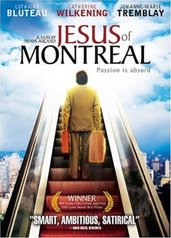
Jésus de Montréal
I tell you now, Denys Arcand will appear more than once on this list, and his 1989 rumination on faith is one of those reasons. The film follows a group of actors who have been hired to stage an interpretive Passion Play in Montreal by the Catholic Church. It all begins as planned, but as the process goes on, the experience of putting on the Play not only begins shifting to present an opposition to the church that hired them, but the actors' private lives begin to follow the narrative of the Play they are producing. It's an interesting film, weaving the real and fake together, deconstructing the narrative of Jesus' death and rebuilding it into a contemporary satire that underlines the absurdity of the act, but also the apparent need for its existence..
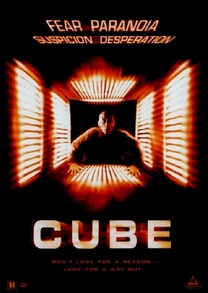
Vincenzo Natali is an American-born Canadian filmmaker who has made some very interesting headway in the realms of Canadian sf. Before continuing along the likes of Cypher, Nothing and Splice amongst others (all of which you should watch... except maybe Splice), Natali hit the waves with Cube. An incredibly claustrophobic psychological horror/thriller, it saw six random strangers all awaken alone in a large cuboid room, each one connected to another seemingly identical cuboid. As each person makes their way round, meeting up as they go, the lack of information and closed space creates mistrust, animosity and violence. And none of this is helped by the traps... There may have been a few sequels that wore down the shine a bit, but the first film is great example of budget sf, wonderfully executed to very effective ends. Haven't seen it? Do it. Seen it already? Go watch it again.
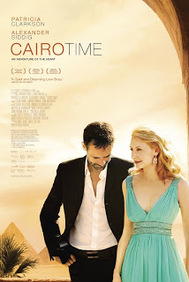
Coming from writer-director Ruba Nadda, Cairo Time is a very charming romantic drama about the unexpected, albeit brief love affair that sparks between two friends whilst spending time in Cairo. Patricia Clarkson (who is just always wonderful to watch) is a magazine editor in the Egyptian capital with her husband, a UN official here for work, who finds her passions stirred not only the city, but by her husband's friend who was asked to keep her company. It may sound pretty standard as far as such stories go, and in some ways it is, but there is a lot more going for Cairo Time than just standard tropes of the genre. Both Clarkson and Alexander Siddig have an easy chemistry onscreen, and it all plays out with a subtle maturity that stops it from slipping into something more recognisably Ephron- or Meyers-tinted. Next time date night comes along, give this one a try.
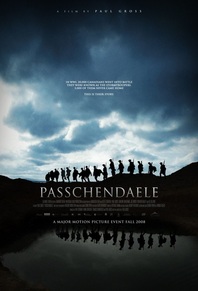
To some (specifically those who have fond memories of a show called Due South), Paul Gross is what they think of when they think of Canadian films. This is perhaps an egregious error, but the man does have his place, and he does make an effort to present Canadian film to a greater audience. More akin to a vanity project than anything else, Gross does show some ambition in writing, directing and starring in this World War I-set story about the life of a troubled veteran of the Battle of Passchendaele, the nurse who helped him after he is injured (and subsequently becomes his girlfriend), and her younger brother who seeks the approval of his girlfriend's father by enlisting. It's ambition may ultimately be something of rock too heavy for it lift (despite the awards), but it's a film that is visually impressive and has a great texture to it. Plus, absolutely anything with Caroline Dhavernas in it must be seen.
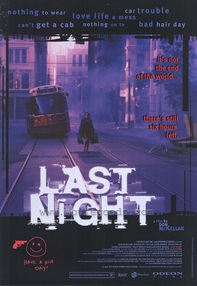
What would you do in the last six hours of the last day in existence? That is the premise of Don McKellar's excellent ensemble piece that presents an alternate take of the disaster movie, like the much better precursor to Seeking a Friend for the End of the World. Some people just want to party, some people just want to destroy, some people just want to be together, some people just want to be left alone. The various reactions of those facing inevitable destruction are presented in a manner that is as simple and clear as the cause of armageddon is vague and obfuscated. The cast is also really excellent, finding the likes of Sandra Oh, Sarah Polley, Callum Keith Rennie and McKellar himself all on form. Even filmmaker David Cronenberg appears in a role that is actually rather sweet. It's a fine film, so check it out.
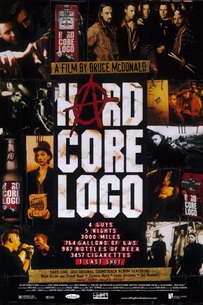
The easiest frame of reference for Bruce McDonald's 1996 film is perhaps as a kind of Canadian This Is Spinal Tap meets Almost famous, in that it is a mockumentary that follows the punk band Hard Core Logo, who formed in 1978, disbanded in 1991, and then reformed for one last blast reunion tour five years later. To mark the occasion, documentary filmmaker Bruce McDonald films the band on tour, watching the four band members come to remember both why they formed in the first place, and why they ultimately spit apart, particularly the rift between the band's frontman Joe and the guitarist with mystique Billy. It's not really ever as funny as This Is Spinal Tap (it never tries to be, which is why the comparison isn't wholly accurate), but it is actually far more convincing as a portrait of a band trying to find a spark to push through into the spotlight. The music is pretty decent, too.
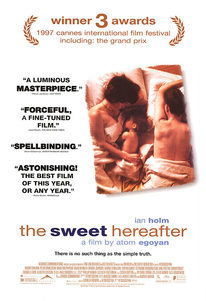
Atom Egoyan is a Canadian filmmaker who has been making interesting, sweet, difficult, uneasy and very good films since the mid-80s, though it would be another decade before he really hit his stride, whereupon he made a series of involving films. It may have been 1994's Exotica that got everyone's interest, but it was The Sweet Hereafter that got their attention. Based on the Russell Banks novel, it follows the difficulties of a small-town community in the aftermath of a tragic bus accident that kills most of the town's children. The need to grieve, the need to heal, the need to blame, the need for justice all come to the fore as many now childless parents have to rebuild themselves. It's a haunting film, emotional in a multitude of ways. It remains one of Egoyan's best films, and if you are interested in the man who recently brought us Devil's Knot (which approaches similar notions), have a look at this one.
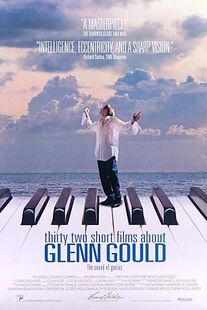
François Girard's quasi-biographical film about pianist Glenn Gould takes a rather unique approach when trying address the man's life. Girard found his attempts to bring Gould to a cinema screen in a single narrative so awkward and lacking that he ultimately opted to present, as the title suggests, thirty-two short films collected together to highlight different aspects of the Gould's life, his work, and his personality. And no approach is off the table when creating these vignettes, be they documentaries in the shape of interviews, dramatisations of moments from Gould's life, and brief moments of animation that attempt to visualise how the pianist style of playing music would move if it had a more visual aesthetic. In terms of how to approach the difficult task of putting someone's life onscreen, Thirty Two Short Films About Glenn Gould shirks the potentially reductive standard of biopic and attempts something bigger... to capture the very essence of Glenn Gould.
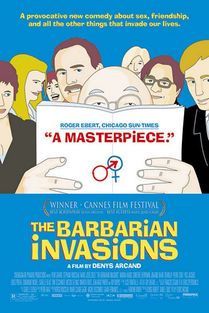
Denys Arcand is one of Canada's most accomplished filmmakers, receiving worldwide acclaim for a number of his films. The French-Canadian director has had a career spanning decades, but it is perhaps this trilogy that has seen him at his best, and certainly his most successful. Pretentious and contentious, erudite and fatuous, considered and reactionary, the films chart the ideals of a group of, basically, social democrats and nationalists who discuss the various ins and outs of their lives, how they behave and what effect such behaviour may or may not have down the line, for each other and the children they will eventually have... yeah, they're kind of chatty films. And you will frankly either find the films stimulating and engaging or utterly boring and pompous, but you want that from your cinema, something that will challenge where you stand or how you present your views.
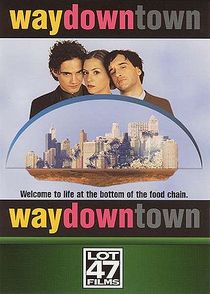
Office work can be... dull. The recirculated air, the canteens and food courts, the fluorescent lighting. It can really bring you down. So, to make things more interesting, four twenty-something office workers have made a bet: one month's salary to see who can last the longest without going outside. At all. In a city that's all glass skywalks and corridors, this would seem both way easier and way harder than it would seem. On the final day of the bet, the four co-workers spend their lunch hour counting down the time before they see who wins and finally leave. However, they've been inside too long and this lunch hour begins to grind them down in increasingly more surreal ways. Gary Burns' corporate satire arrived just a year after Mike Judge's cult favourite Office Space, perhaps a little too late to make the impression it wanted, but it absolutely warrants a viewing. Find it and watch it.

 RSS Feed
RSS Feed
